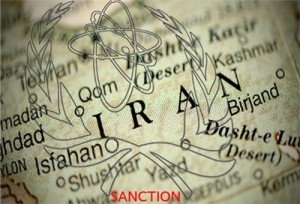 The sanctions relief offered to Iran by the U.S. and five world powers has begun to get the gears of commerce slowly turning again in an economy that remains in shambles.
The sanctions relief offered to Iran by the U.S. and five world powers has begun to get the gears of commerce slowly turning again in an economy that remains in shambles.The Obama Administration estimates relief from some sanctions in exchange for a temporary pause in Iran's nuclear enrichment program will amount to just $7 billion. That's a meager amount for the economy of a nation of nearly 80 million people � it's less than one month's worth of Iran's oil production and just 7 percent of Iran's overseas cash that remains frozen under the sanctions.
Still, Iranians see the move as a much needed step toward a more normal economy after years of crippling inflation and job losses.
"Markets operate on a psychological basis," says Ray Takeyh, an Iran expert at the Council on Foreign Relations and former U.S. State Department senior adviser. "The psychology of Iranian commerce has changed."
Rahmat Dehghani, a glazier, says he has been invited to discuss a new hotel project in the northeastern city of Mashhad, 550 miles (900 kilometers) east of the capital, Tehran.
"For months, the owner had delayed any discussion about his project since the future was not clear for any investment," he said.
The Iranian economy was already struggling under the weight of corruption, mismanagement and costly food, energy and cash subsides for the poor when the U.S. and Europe broadened economic sanctions against Iran to include its crucial oil and banking sectors in late 2011.
Oil sales plummeted by about 1.5 million barrels per day, depriving Iran of about $80 billion since early 2012, according to the White House. At the same time, much of the revenue Iran did earn from exports to a few Asian countries that were allowed to buy Iranian oil remained out of the country. The sanctions required oil buyers to pay into locked bank accounts that Iran can access only to purchase non-sanctioned goods or humanitarian supplies.
Manufacturers found it increasingly difficult to buy crucial components to make products or keep factories running. Inflation and unemployment soared and Iran's national currency, the rial, lost more than half its value.
"People can't save, they can't invest, it's hard to buy a home, no one can trust the currency, no one knows what they really earn," says Anthony Cordesman, a Middle East and energy expert at the Center for Strategic and International Studies.
At the same time, Iran is believed to have provided the regime of Syrian President Bashar Assad with billions of dollars in economic aid and fuel over the past three years as Syria's civil war erupted.
Public grumbling grew. Prices for staples such as chicken and lamb climbed out of reach of many low-income Iranians. Late last year, Iranian riot police were deployed at key intersections in Tehran after sporadic protests flared.
That frustration led to the election of President Hassan Rouhani, who campaigned on economic reforms. Iranians blamed former President Mahmoud Ahmadinejad for mismanagement and corruption that many believe was at least as damaging to the economy as the West's sanctions.
The bleak conditions may have also forced Rouhani � backed by Iran's supreme leader Ayatollah Ali Khamenei � to back the nuclear deal struck Sunday in Geneva between Iran and the U.S., Russia, China, France, the U.K. and Germany.
By ABC News
The Iran Project is not responsible for the content of quoted articles.










